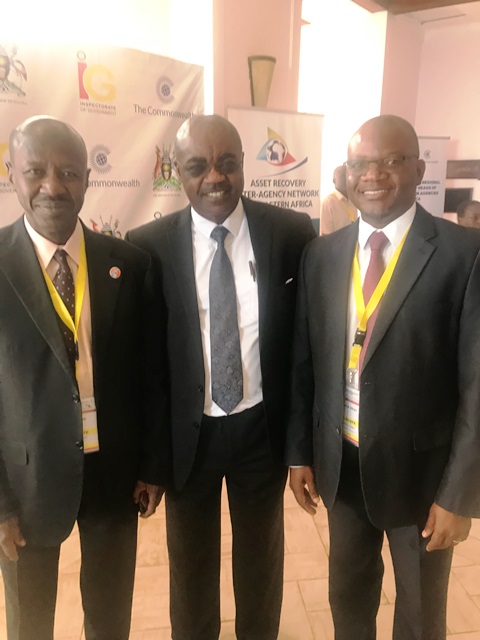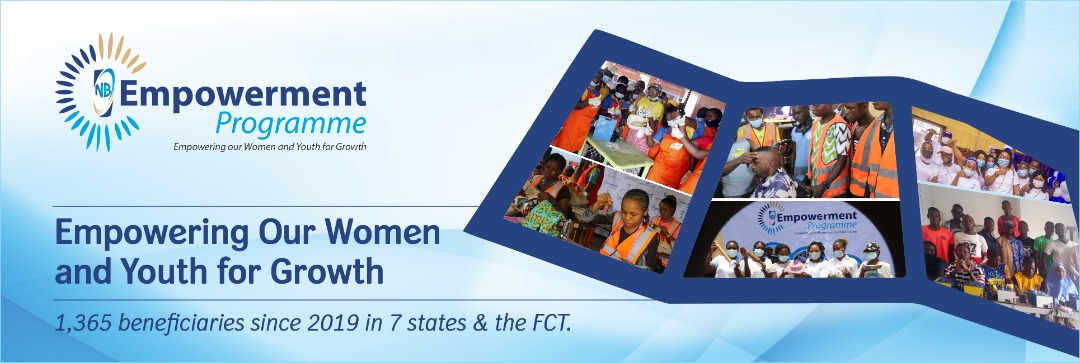THE Economic and Financial Crimes Commission (EFCC) says it recovered over N4billion for three different government agencies in 2019 as part of the commission’s inter-agency relationship.
“This quest in 2018 saw the Commission assisted the Federal Inland Revenue Service, (FIRS) in recovering N6,316,041,396.21 in unremitted tax revenues,”said the Acting Chairman of EFCC, Ibrahim Magu on Wednesday.
Magu was speaking in Kampala, Uganda, during the ongoing 9th Commonwealth Regional Conference for Heads of Anti-Corruption Agencies in Africa.
“As an agency which is not used to working in silos, the EFCC consistently strives to assist other agencies of government in tackling corruption.
“It equally assisted in the recovery of the sums of N541,975,000 for the Asset Management Corporation of Nigeria, (AMCON).
“The Commission recovered N1,590,039,312.54; N1,760,000,000.00 and N1,030,246,938.51 for AMCON, Nigerian National Petroleum Corporation (NNPC) and FIRS respectively, from January to April, 2019.”
Speaking on the role of the Commission in the 2019 general elections, Magu explained that the anti-graft agency intervened in the recent general elections in Nigeria, in order to checkmate and prevent the moneybags from determining the emergence of leaders arising from the polls.
In a paper titled: “Creative Initiatives in the Fight against Corruption in Nigeria”, Magu who is also the outgoing Chairman of the Commonwealth Regional Conference, noted that the EFCC’s intervention during the Presidential and National Assembly elections on March 9, and the Governorship and State Assembly elections on March 23 paid off with positive results.
While disclosing that huge cash of different denominations were seized from politicians and their associates, Magu added that arrested perpetrators of the infamous act were already being prosecuted, just as a councillor from Gombe State has been convicted.
Magu said: “For the first time in the history of electioneering in Nigeria, operatives of the Commission were deployed to monitor polling stations and collation centres to discourage vote buying.
“The efforts culminated in some cash seizure and arrests. Some of those arrested have been prosecuted and convicted. The presence of EFCC operatives, according to some of the election monitors, was a major deterrence to dubious politicians and their associates.
“With the general election slated for first quarter of 2019, the focus of the Commission’s enforcement activities in 2018 was checking money laundering and illicit financial flows. Steps were taken to explore the relationships that exist between the EFCC and other ACAs especially in the West African sub-region to tighten the screws and make trans border cash smuggling difficult.
“Part of these efforts saw me visiting my colleagues at the Higher Authority Against Corruption and Relating Crimes, HALCIA in Niger Republic and the Economic and Organized Crime Office (EOCO), in Ghana.”
Intelligence, he added, was also stepped up to track cash movements within and outside the banking sector.
He said: “Strategic deterrence meetings were held with compliance officers and chief executives of deposit money banks and Bureaux De Change to prevail on them not to allow their institutions to be used as platforms for money laundering by politicians.
“International airports and other exit ports in the country were placed under surveillance, leading to huge cash seizures at a few Airports.”
Sharing his experience and the achievements of the EFCC under his watch, Magu revealed that the agency secured 189 convictions in 2017 and recovered more than N437 billion, $98 million €7 million and £294,000.
Magu said: “We have sustained the momentum. Indeed, the Commission’s movement into a new head office complex, which commissioning was witnessed by some of you, energised the workforce, resulting in dramatic improvements in all the mandate areas of the Commission.
“In the last one year, the Commission almost doubled its conviction return with a record 315 convictions in 2018 and over N236.16 billion worth of assets recovered. Assets forfeited in the year include 350 properties, 141 automobiles, 100 real estate, three vessels, 37 plots of land, two hotels, one barge, gas petrol stations and 44 bank accounts.”
Regarding the tackling of corruption, the EFCC boss said there was the need for the people to own the fight, saying that the way forward remains active participation by the people and other stakeholders.
Magu said: “Tackling corruption in a complex multi-ethnic society with a population of nearly 200 million people requires a robust prevention strategy. There is so much the anti-corruption agencies can do without a buy-in by the people.
“Public ownership of the fight against corruption is therefore pivotal to any quest for success in the fight against corruption In Nigeria or elsewhere.”
















